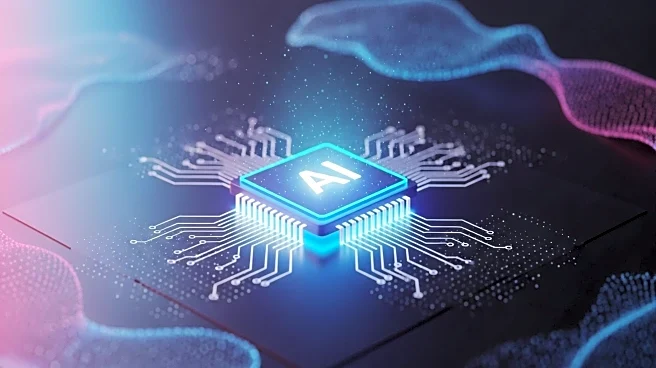What is the story about?
What's Happening?
General Catalyst is spearheading a new venture capital strategy focused on transforming traditionally labor-intensive services businesses using AI. The firm has allocated $1.5 billion to incubate AI-native software companies in specific verticals, which will then acquire established firms in the same sectors. This approach aims to automate tasks and improve cash flow, allowing for further acquisitions. The strategy is being applied across seven industries, with plans to expand to 20 sectors. The firm has already seen success with companies like Titan MSP and Eudia, which have demonstrated significant automation capabilities and improved margins.
Why It's Important?
The strategy represents a significant shift in venture capital investment, focusing on AI's potential to transform services industries. By automating tasks, these companies can achieve higher margins similar to software businesses, potentially revolutionizing sectors like legal services and IT management. This approach could lead to increased efficiency and profitability, benefiting investors and stakeholders. However, challenges remain, such as the risk of 'workslop,' where AI-generated tasks create additional work for employees, potentially undermining the strategy's core economics.
What's Next?
General Catalyst plans to continue expanding its strategy, targeting more industries and acquiring additional companies. The firm aims to double the EBITDA margin of acquired companies, leveraging AI to improve efficiency. However, the success of this strategy will depend on overcoming technical challenges and ensuring AI implementation does not lead to increased workload for employees. The venture capital industry will be closely watching these developments, as they could set a precedent for future investments in AI-driven transformations.
Beyond the Headlines
The strategy highlights the complexity of integrating AI into traditional businesses, requiring technical expertise and industry knowledge. It also raises ethical considerations regarding the impact on employment and the potential for increased workload due to AI-generated tasks. As AI technology continues to evolve, companies will need to balance efficiency gains with employee well-being and productivity.















